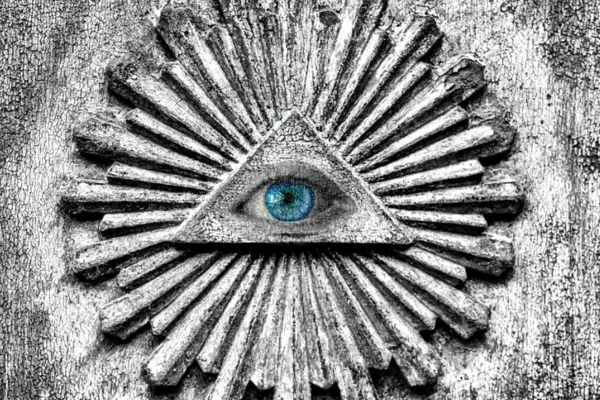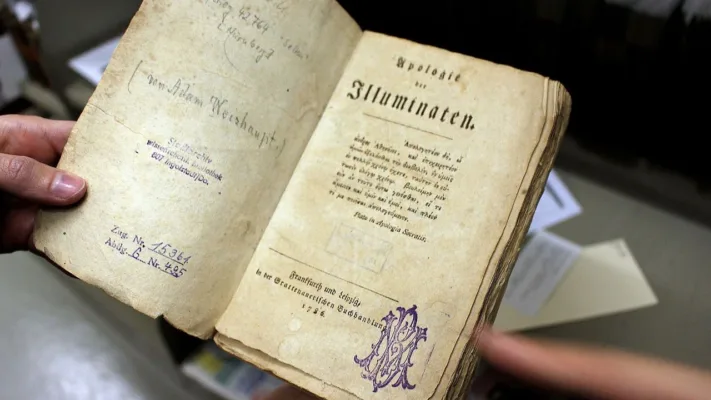Dominus Illuminatio Mea
The Latin phrase “Dominus Illuminati Mea” translates to “The Lord is my light” in English. This phrase has a rich historical background and carries great significance in various fields, including literature, theology, and education. In this article, we will explore the meaning of this phrase, its historical background, and its significance in various contexts.

Explanation of “Dominus Illuminatio Mea”
The phrase “Dominus Illuminatio Mea” is derived from Psalm 27:1 in the Bible, which reads, “The Lord is my light and my salvation; whom shall I fear? The Lord is the stronghold of my life; of whom shall I be afraid?” In this context, the phrase refers to the belief that God provides guidance and protection to those who trust in Him. The phrase has been used in various forms of religious worship and has also been adopted by various academic institutions as their motto.
Historical background and significance of the phrase
The phrase “Dominus Illuminatio Mea” has a rich history dating back to the 14th century. It was first used as the motto of the University of Oxford in 1488 and has since been adopted by various educational institutions around the world. The phrase has also been used in literature, including the works of John Milton, who used it in his poem “Samson Agonistes” to express the idea of finding guidance in times of darkness.
In addition to its religious and literary significance, the phrase has also been adopted by various organizations and businesses as a symbol of enlightenment and guidance. For example, the BBC uses the phrase in its logo to represent the idea of providing informative and educational programming.
Purpose of the article
The purpose of this article is to provide a deeper understanding of the phrase “Dominus Illuminatio Mea,” its historical background, and its significance in various fields. By exploring the meaning of this phrase, we can gain a greater appreciation for its use in religious and academic contexts, as well as its broader significance in society.
Origins of “Dominus Illuminatio Mea”
The Latin phrase “Dominus Illuminatio Mea” is a powerful statement of faith that has a long and storied history. In this article, we will explore the origins of this phrase, its usage in traditional liturgy and religious texts, and how it has evolved over time.

Biblical Origins
The phrase “Dominus Illuminatio Mea” can be traced back to the Bible. In Psalm 27:1, it is written, “The Lord is my light and my salvation; whom shall I fear? The Lord is the stronghold of my life; of whom shall I be afraid?” This verse is often interpreted as a declaration of faith in God’s protection and guidance. The phrase “Dominus Illuminatio Mea” is a Latin translation of this verse, which has been used in religious contexts for centuries.
Usage in Traditional Liturgy and Religious Texts
The phrase “Dominus Illuminatio Mea” has been used in traditional liturgy and religious texts for centuries. It is a popular choice for liturgical hymns, and is often sung or recited in churches around the world. The phrase has also been used in religious art, such as illuminated manuscripts and stained glass windows.
Evolution of the Phrase over Time
Over time, the phrase “Dominus Illuminatio Mea” has evolved and taken on different meanings for different people. For some, it is a simple declaration of faith in God’s protection and guidance. For others, it is a reminder that God is the source of all light and truth in the world.
In recent years, the phrase has become popular outside of religious contexts as well. It is often used as a motto or slogan and has been adopted by schools, universities, and other organizations as a symbol of their commitment to education and enlightenment.
The phrase “Dominus Illuminatio Mea” has a long and rich history, and has been a source of inspiration and comfort for countless people over the centuries. Whether used in traditional liturgy or as a modern slogan, it remains a powerful statement of faith in God’s protection and guidance, and a reminder that all true enlightenment comes from him.
Cultural Significance of “Dominus Illuminatio Mea”
The phrase “Dominus Illuminatio Mea,” which translates to “The Lord is my light” in English, has a rich cultural significance that extends beyond its religious origins. This article will explore the various ways in which the phrase has been used in popular culture and media, its symbolic significance in art, literature, and music, and its influence on contemporary culture and society.

Use in Popular Culture and Media
The phrase “Dominus Illuminatio Mea” has been used in a variety of popular culture and media, including films, television shows, and video games. One notable example is the 2015 film “Spectre,” in which the phrase is the motto of the villainous organization. The use of the phrase in this context suggests a dark and ominous meaning, adding to the intrigue and mystery surrounding the organization.
Symbolic Significance in Art, Literature, and Music
The phrase “Dominus Illuminatio Mea” has been a source of inspiration for artists, writers, and musicians throughout history. In art, the phrase has been used to symbolize the power of divine light to guide and inspire human creativity. It has been featured in many famous paintings, including “The Calling of St. Matthew” by Caravaggio.
In literature, the phrase has been used to convey themes of hope, faith, and redemption. It has been featured in many famous works, including John Milton’s “Paradise Lost” and T.S. Eliot’s “Four Quartets.”
In music, the phrase has been used to convey a sense of spiritual transcendence. It has been featured in many famous pieces, including Handel’s “Messiah” and Rachmaninoff’s “All-Night Vigil.”
Influence on Contemporary Culture and Society
The phrase “Dominus Illuminatio Mea” continues to have a profound influence on contemporary culture and society. It is often used as a symbol of hope and inspiration, particularly in times of difficulty or hardship. It has been adopted as the motto of many organizations, including the University of Oxford, and is often used in marketing and advertising to convey a sense of spiritual or intellectual enlightenment.
In conclusion, the phrase “Dominus Illuminatio Mea” has a rich cultural significance that extends beyond its religious origins. Its use in popular culture and media, its symbolic significance in art, literature, and music, and its influence on contemporary culture and society all attest to its enduring power and relevance.
Educational and Institutional Significance of “Dominus Illuminati Mea”
The phrase “Dominus Illuminatio Mea” has not only religious and cultural significance but also an important role in the educational and institutional world. The phrase is widely used by educational institutions as a motto, reflecting their core values and principles. In this article, we will explore the educational and institutional significance of “Dominus Illuminatio Mea” and its influence on the academic and research communities.
Use in Educational Institutions and Crests
Many educational institutions use “Dominus Illuminatio Mea” as their motto, reflecting their commitment to providing quality education to their students. For example, the University of Oxford in England uses the phrase as its motto and includes it in its coat of arms. The University of Edinburgh in Scotland also uses the phrase in its coat of arms and as its motto.
Similarly, in the United States, several universities and colleges have adopted “Dominus Illuminatio Mea” as their motto, including the University of Houston in Texas, Baylor University in Texas, and the University of Central Arkansas.
Significance in Academic and Research Communities
The phrase “Dominus Illuminatio Mea” has also gained significance in academic and research communities. It is often used to symbolize the pursuit of knowledge and the importance of education in one’s life. The phrase has been used in several academic papers, research articles, and thesis statements, reflecting its importance in the academic world.
Moreover, the phrase has been associated with the Enlightenment movement, which emphasized the importance of rational thinking and the pursuit of knowledge. This association has made the phrase even more significant in the academic world.
Dominus Illuminati Mea and the Influence on Institutional Values and Culture
The use of “Dominus Illuminatio Mea” as a motto reflects an institution’s core values and principles. It emphasizes the importance of education and knowledge and reflects the institution’s commitment to these values. The motto has a significant impact on the institution’s culture, shaping its policies, practices, and decision-making.
In addition, the motto serves as a unifying force, bringing together students, faculty, and staff under a common goal of pursuing knowledge and excellence. It inspires and motivates them to work towards their goals and achieve success.
In conclusion, “Dominus Illuminatio Mea” has a significant educational and institutional significance. Its use in educational institutions and crests reflects its commitment to providing quality education, while its association with the Enlightenment movement emphasizes the importance of rational thinking and the pursuit of knowledge. The motto has a significant impact on institutional values and culture, shaping policies, practices, and decision-making.
Throughout history, “Dominus Illuminatio Mea” has been a phrase with significant cultural, religious, and educational significance. From its biblical origins to its use in contemporary culture and society, the phrase has played a pivotal role in shaping our collective understanding of enlightenment, knowledge, and faith.
As we have seen, the phrase has been used in a variety of contexts, from traditional liturgy and religious texts to popular culture and academic institutions. It has served as a symbol of wisdom, guidance, and divine inspiration, inspiring artists, writers, and thinkers for centuries.
Looking ahead, it is clear that the phrase will continue to play an important role in our culture and society. Its legacy will be felt in the educational institutions that bear its name, in the research communities that value its principles, and in the art and literature that draws inspiration from its symbolism.
For those interested in further exploring the significance of “Dominus Illuminatio Mea,” there are a wealth of resources available, from academic articles and books to artistic interpretations and cultural analyses. By delving deeper into the origins, evolution, and cultural impact of the phrase, we can gain a deeper understanding of its significance and relevance to our lives today.
Some external links related to “Dominus Illuminatio Mea”:
- Oxford University’s official page on its motto “Dominus Illuminatio Mea”: https://www.ox.ac.uk/about/oxford-people/motto
- A detailed analysis of the phrase’s origins and usage in the Bible: https://www.patheos.com/blogs/joeljmiller/2013/03/the-bibles-best-verse-dominus-illuminatio-mea/
- The official website of the University of Edinburgh, which also uses “Dominus Illuminatio Mea” as its motto: https://www.ed.ac.uk/about/edinburgh/our-story/history/coat-of-arms
- A blog post discussing the phrase’s use in popular culture and media: https://www.stevenaitchison.co.uk/dominus-illuminatio-mea-the-lords-my-light/
- A scholarly article on the use of “Dominus Illuminatio Mea” in education and institutional settings: https://www.tandfonline.com/doi/abs/10.1080/0030923022000034612
Please note that these links are provided for informational purposes only, and their inclusion here does not imply endorsement or affiliation with any of the websites or organizations referenced.